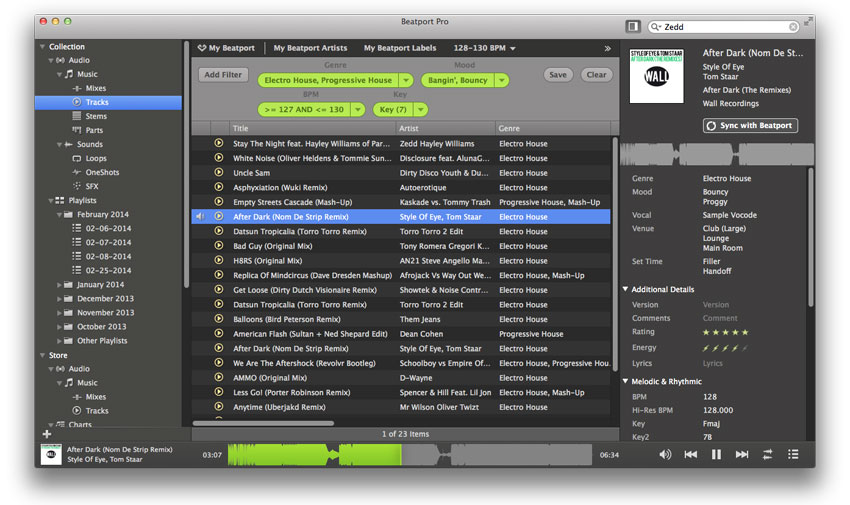Want all the hottest music and gear news, reviews, deals, features and more, direct to your inbox? Sign up here.
You are now subscribed
Your newsletter sign-up was successful
Where should I download music from?
All the major DJ applications can play music in common formats such as MP3, WAV, FLAC, or AIFF, meaning that you should be able to use your existing collection.
One thing worth considering, however, is the quality of your tracks. A lot of music purchased via digital retailers like Amazon or iTunes, or ripped from CDs, is in a ‘lossy’ format such as MP3, meaning that it has been compressed to reduce the size of the file. MP3s are created with different quality settings, listed by bit rate in kilobytes per second (kbps). iTunes and Amazon music is generally 256kbps, which will sound fine on your headphones or home stereo, but may sound ‘flat’ when played loud on a powerful system.

The best solution is to stick to DJing with tracks in a lossless format such as WAV or FLAC, or at least use MP3s with the highest quality settings of 320kbps. If in doubt, test your tracks out on a decent sound system before playing them in public!
There are several DJ-focussed download stores that sell music in higher-quality formats. Beatport is the biggest playing in this space, but others such as Juno Download, Bleep, Boomkat or Traxsource are just as good. As well was track quality, the bonus of using these is that they organise and list music in a way that’s useful for DJs, often supplying information such as a track’s BPM, musical key or its genre.
Want to download tracks for free? Try searching out your favourite producers on SoundCloud. You’ll likely find plenty of (completely legal) freebies to get you going.
Want all the hottest music and gear news, reviews, deals, features and more, direct to your inbox? Sign up here.
Current page: Where should I download music from?
Prev Page What is a ‘digital vinyl system’? Next Page How do I organise and prepare tracks?I'm the Managing Editor of Music Technology at MusicRadar and former Editor-in-Chief of Future Music, Computer Music and Electronic Musician. I've been messing around with music tech in various forms for over two decades. I've also spent the last 10 years forgetting how to play guitar. Find me in the chillout room at raves complaining that it's past my bedtime.